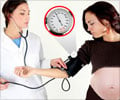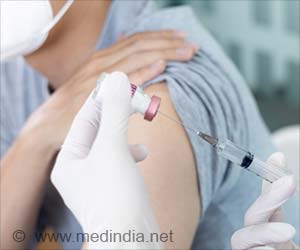The new pre-eclampsia test could help save lives of hundreds of babies by avoiding preterm delivery and also assess the immediate risk to mothers.
Highlights
- Most cases of pre-eclampsia are mild cases but sometimes it can develop into a more serious illness which can be life-threatening for both the mother and baby.
- Severe cases are handled usually by delivering the baby immediately to save the mother’s life, but this preterm delivery can pose serious threats to the infant’s health.
- A test that relies on information, collected with blood tests, urine tests and medical history, has been developed to assess the maternal outcome of pre-eclampsia, which will also allow pregnant women to carry their babies to term.
Pre-eclampsia is a dangerous condition that occurs during pregnancy, characterized by high blood pressure.
In many cases it is mild, but in its extreme form, the life of mother and baby is at risk, especially if left untreated.
Delivering the baby immediately to save the mother is the only way to handle most severe cases. But if this problem strikes as early as 20 weeks, delivering the baby prematurely can pose a huge risk to the infant’s health.
A series of tests have been developed by doctors in London, which when analyzed with a computer program can tell with 84% accuracy whether a mother is at immediate risk.
Test
The test relies on just 12 pieces of information, collected with blood tests, urine tests and medical history.
These include mother’s age, gestation at which pre-eclampsia was diagnosed, blood pressure, urine protein level, liver and kidney function, oxygen saturation and level of toxins and platelets in the blood and urine.
This information when combined gives the doctor the percentage at which the patient is at risk of a severe health problem in the next 48 hours.
If the chance of complication is high, the doctor will decide to deliver the baby, and if it is low the patient can be discharged and monitored.
The program was tested on 634 women in Canada, and 216 women in the Netherlands, to make sure it worked on other populations and it is now to be turned into a smartphone app, enabling it to be widely used.
Benefits of the test:
- enables doctors to make an informed decision about whether to deliver the baby or whether the mother can safely be discharged and just monitored for the problem
- gives doctors the confidence to delay delivery, potentially saving the baby’s life
- could also reduce pressure on overstretched neonatal intensive care units
Professor Hywel Williams, of the NHS National Institute for Health Research which funded the study, said "The NIHR is proud to have supported this independent research which should make a difference to the health of mothers and babies in the NHS."
Marcus Green, chief executive of the Action on Pre-eclampsia charity, said "This devastating condition frightens patients, comes on quickly, is unpredictable and can kill. Knowing when to intervene and when to deliver is crucial and this work is very helpful in identifying the women who really need careful medical attention and to ensure they get the care they need."
Professor Basky Thilaganathan, spokesman for the Royal College of Obstetricians and Gynaecologists, said "Although pre-eclampsia is usually mild, easily managed and has very little effect on pregnancy, it can sometimes develop into a more serious illness which can be life-threatening for both the mother and baby. Pregnant women should seek immediate advice from a healthcare professional if they experience symptoms of pre-eclampsia including severe headaches, problems with vision, and sudden swelling of the face, hands or feet. The prediction model has the potential to assist clinicians in managing women with early onset pre-eclampsia."
The results are published in the BMC Medicine journal.
References
- Shakila Thangaratinam et al. Prediction of complications in early-onset pre-eclampsia (PREP): development and external multinational validation of prognostic models. BMC Medicine; (2017) DOI: 10.1186/s12916-017-0827-3
- Preeclampsia - (http://www.mayoclinic.org/diseases-conditions/preeclampsia/basics/definition/con-20031644)
Source-Medindia















